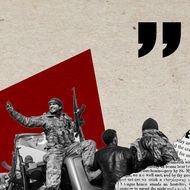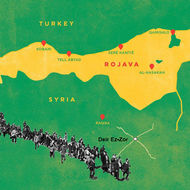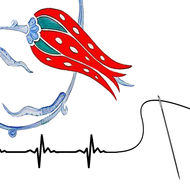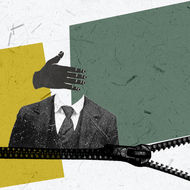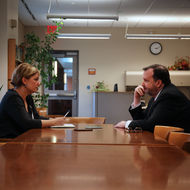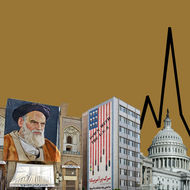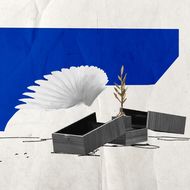Search articles
Search results for
Turkey’s Role in Recruiting Syrian Rebels for Azerbaijan
By Lusine Sargsyan
A number of international media outlets have published stories about Syrian militants who have been offered up to $1500/month by Turkey to fight alongside the Azerbaijani military.
Turkey, the Kurds and the Generational Trauma of the Armenians
By Maria Titizian
When Turkey launched its military offensive in northeastern Syria, it triggered something in the minds and hearts and memories of many Armenians.
Turkish, Azerbaijani Identity Void and Genocide
By Paul Mirabile
Is it necessary to assimilate or exterminate a people to affirm one's identity? Has an Azerbaijani identity been founded upon the genocide of a people, who, like in Turkey, lived side by side with the Turkic populations until the rise of nationalism?
Turkish-Georgian Economic Relations: A Case Study
By Hranoush Dermoyan
Turkey is Georgia’s main source of imports and finances strategic infrastructure such as energy projects. The imbalanced arrangement provided Turkey with “strategic depth” and opportunities for power projection. Armenians are apprehensive about the repercussions of going in the same direction.
Turkish, Western Self-interest Behind Artsakh Bloodshed
By Ave Tavoukjian
As the hordes mass at Armenia’s gates, the U.S. and Europe, the supposed guardians of peace and justice, remain reluctant to intervene to halt the violence due to self-interest and capitulation to Turkish blackmail.
Two Different Approaches to Data Retention: What Can Armenia Learn?
By Kristine Hovhannisyan
This article dives into the international experience in the field of data retention policy to help inform the decision-making process in Armenia.
Two Documentaries, One Velvet Revolution
By Christopher Atamian
Christopher Atamian reviews two documentaries by two diasporan filmmakers about Armenia’s Velvet Revolution and writes that both deliver a somewhat hagiographic portrayal of Pashinyan and his supporters.
U.S. Ambassador Mills: I Leave Inspired and Hopeful
By Maria Titizian
Departing U.S. Ambassador Richard M. Mills in an exclusive interview with EVN Report speaks candidly about his three and a half years in Armenia, the Velvet Revolution, Artsakh, the region and more.
U.S. Sanctions and Iran: Potential Impact on Armenia’s Economy
By Samson Avetian
Economist Samson Avetian takes a brief look at the history of complicated relations between the U.S. and Iran. He argues that economic relations between Armenia and Iran are unlikely to see significant changes even in light of Iran’s escalating tensions with the West.
Unblocking the South Caucasus or Blocking Armenia’s Chances?
By Tatevik Hayrapetyan
A year after the end of the war in Artsakh, Armenia and Azerbaijan are far from a sustainable peace. Regardless of how many olive branches are gifted to the leaders of the two sides, we are once again back to a “no war, no peace” situation, writes Tatevik Hayrapetyan.


